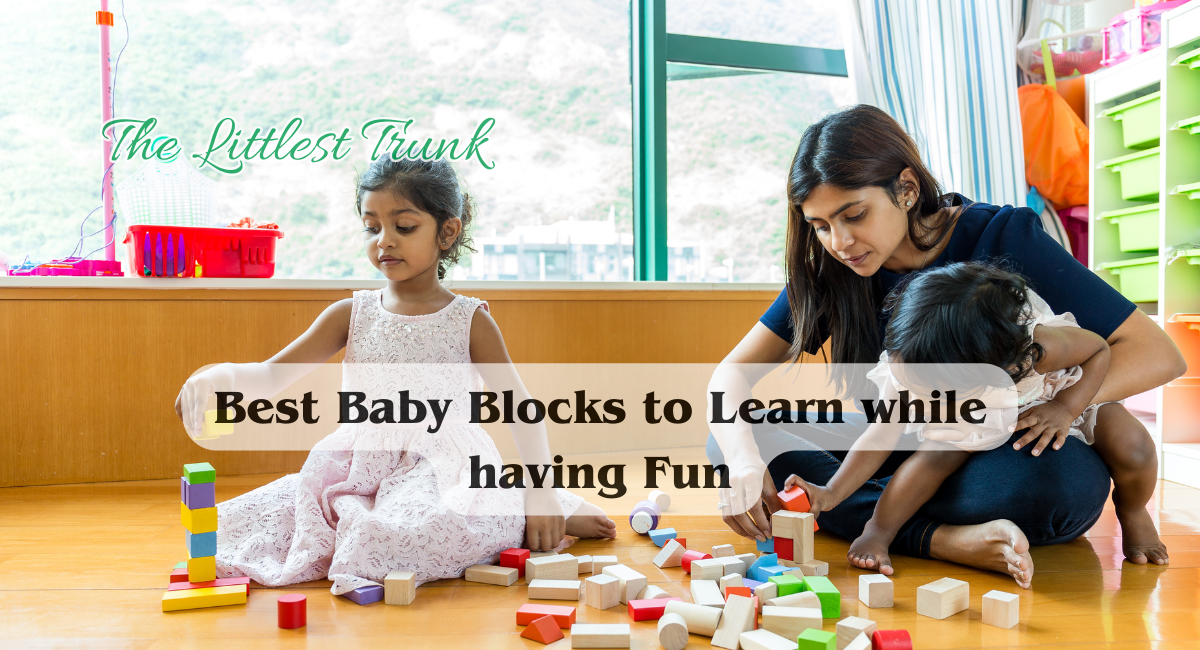As parents, we are always looking for ways to engage our little ones in fun and educational activities. Baby blocks have been a staple in children’s toy boxes for generations, and good reason. These simple yet versatile toys benefit babies as they learn and explore the world around them. In this article, we will explore the best baby blocks that promote learning while keeping your little one entertained for hours.
The Importance of Baby Blocks
Baby blocks play a crucial role in a child’s development. They are not just ordinary toys but tools that stimulate various aspects of a child’s growth. For example, babies develop their fine motor skills, hand-eye coordination, and spatial awareness by playing with blocks. Furthermore, building and stacking blocks enhance problem-solving abilities and encourage imaginative play, fostering creativity in young minds.
Factors to Consider When Choosing Baby Blocks
When selecting baby blocks, it’s essential to consider a few factors to ensure they are suitable for your child’s age and development stage. Here are some key considerations:
- Safety: Opt for blocks made from non-toxic materials, free from small parts that could pose a choking hazard.
- Size and Weight: Choose lightweight blocks that are easy for your baby to handle and manipulate.
- Textures and Colors: Look for blocks with different textures and vibrant colors to engage your baby’s senses and stimulate cognitive development.
- Durability: Select durable blocks that can withstand the rough play of curious little hands.
Top 5 Baby Blocks for Learning and Fun
Block Set 1: ABC Blocks
ABC blocks are a classic choice for introducing babies to the alphabet. These blocks often feature alphabet letters, numbers, and colorful images. They are excellent for early language development, teaching basic counting skills, and sparking curiosity about words.
Block Set 2: Stackable Blocks
Stackable blocks are perfect for teaching babies about balance and stability. These blocks come in various sizes and shapes, allowing little ones to experiment with different stacking patterns. This activity enhances their problem-solving skills while developing their hand-eye coordination.
Block Set 3: Shape Sorting Blocks
Shape sorting blocks are designed to introduce babies to different shapes and colors. Children can match conditions to corresponding holes with these blocks, promoting cognitive development and enhancing their ability to recognize patterns.
Block Set 4: Sensory Blocks
Sensory blocks are specifically designed to engage multiple senses simultaneously. For example, they may have textured surfaces, make sounds, or have different colors and shapes. Sensory blocks encourage exploration and sensory stimulation, helping babies develop their sensory perception and cognitive skills.
Block Set 5: Building Blocks
Building blocks are a must-have for any baby’s toy collection. These blocks allow children to unleash their creativity and construct various structures. In addition, building with blocks enhances spatial awareness, problem-solving abilities, and fine motor skills.
Benefits of Using Baby Blocks
Using baby blocks provides numerous benefits for your child’s development. Here are some key advantages:
- Enhances fine motor skills and hand-eye coordination.
- Stimulates cognitive development and problem-solving abilities.
- Fosters creativity, imagination, and spatial awareness.
- Promotes language development and early literacy skills.
- Encourages social interaction and cooperation when playing with others.
Tips for Maximizing Learning with Baby Blocks
To maximize the learning potential of baby blocks, consider the following tips:
- Engage in interactive play with your baby, encouraging them to explore different ways of using the blocks.
- Introduce concepts like colors, numbers, and shapes while playing with the blocks.
- Use descriptive language to describe the actions and structures your baby creates with the blocks, enhancing their vocabulary.
- Rotate and introduce new block sets regularly to keep the playtime exciting and challenging.
- Create open-ended play opportunities, allowing your child to use their imagination and creativity freely.
Conclusion
In conclusion, baby blocks are not just entertaining toys but powerful learning tools that contribute to a child’s overall development. Choosing the right blocks and engaging in meaningful play can foster your baby’s cognitive, motor, and social skills. The top baby blocks mentioned in this article, such as ABC blocks, stackable blocks, shape sorting blocks, sensory blocks, and building blocks, offer a variety of learning experiences while ensuring your little one has a blast.
FAQs
Q1: At what age can I introduce baby blocks to my child?
Baby blocks can be introduced as early as six months old when babies start to develop their fine motor skills and hand-eye coordination. However, always consider your child’s developmental stage and choose blocks suitable for their age and abilities.
Q2: Are baby blocks safe for teething babies?
Not all baby blocks are designed for teething. Look for blocks made from soft, non-toxic materials that are specifically labeled as safe for teething babies. Avoid blocks with small parts that could pose a choking hazard.
Q3: How can I clean baby blocks?
Most baby blocks can be cleaned with warm, soapy water. However, ensure you rinse them thoroughly and let them air dry before giving them back to your baby.
Q4: Can older children also benefit from playing with baby blocks?
Yes, older children can benefit from playing with baby blocks too. They can use blocks to build more complex structures, explore advanced concepts in mathematics and engineering, and engage in cooperative play with younger siblings or friends.
Q5: Are wooden blocks better than plastic blocks?
Both wooden and plastic blocks have their advantages. Wooden blocks are more durable and eco-friendly, while plastic blocks are often more affordable and easier to clean. Choose the material that best suits your preferences and safety considerations.
Read more: Comfort vs Fashion: Choosing Kids Wear for Baby Girls
